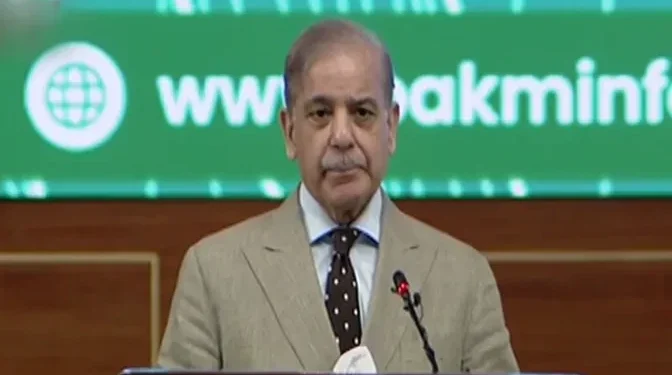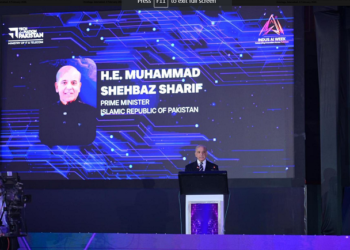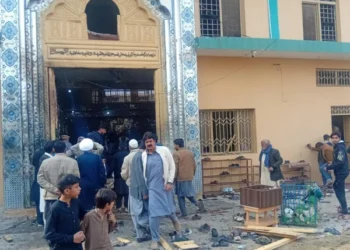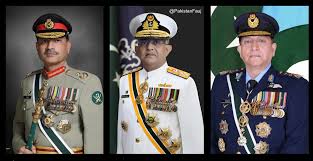Islamabad: In a bold and hopeful address at the Pakistan Minerals Investment Forum, Prime Minister Shehbaz Sharif emphasized the immense potential of Pakistan’s natural mineral wealth to steer the country out of its mounting debt crisis. He outlined a vision in which effective resource extraction and investment in the mining sector could liberate the nation from its reliance on foreign aid and loans.
Vast Mineral Wealth Across Provinces
While addressing national and international investors, economists, and officials, Prime Minister Shehbaz Sharif highlighted that Pakistan is endowed with mineral reserves worth trillions of dollars. These reserves lie buried beneath the mountainous terrains of Balochistan, Khyber Pakhtunkhwa (KP), Gilgit-Baltistan, and Azad Jammu & Kashmir (AJK).
From the mineral-rich rocky mountains of Balochistan to the brush-covered ranges of KP, the ancient peaks of Gilgit-Baltistan, and the strategic locations in AJK, these territories contain a wealth of untapped natural resources, including copper, gold, coal, rare earth elements, gemstones, and more.
According to geological surveys, Balochistan alone is believed to have mineral deposits worth over $1 trillion, including massive copper and gold reserves in the Reko Diq area. KP is known for its precious gemstones and marble, while Gilgit-Baltistan and AJK offer abundant deposits of minerals and strategic metals.
Natural Resources: A Pathway to Economic Independence
“If we can benefit from these great assets,” Prime Minister Shehbaz Sharif declared, “then I can say without fear or hesitation that Pakistan can say goodbye to the IMF and get a jolt from its mountain of debt.”
He emphasized that these mineral resources could become a game-changer for Pakistan’s economy. By properly exploring and extracting them through public-private partnerships, advanced technologies, and transparent governance, the country could generate billions of dollars in revenue, boost exports, and create thousands of jobs.
The Prime Minister’s remarks come at a time when Pakistan is grappling with a severe economic crisis, with rising inflation, depreciating currency, and increasing dependency on IMF bailouts and foreign loans. As of 2024, Pakistan’s external debt stands at nearly $130 billion, putting immense pressure on the national budget.
Agricultural Strength and Human Capital: Additional Assets
In addition to mineral resources, the Prime Minister also praised Pakistan’s agricultural landscape. He mentioned the fertile lands of Punjab and Sindh, which hold great potential for boosting agro-economy through modernization and sustainable farming practices.
“We have extremely fertile lands, and above all, we have brave and resilient people who are ready to accept challenges and have the ability to turn soil into gold,” said Shehbaz Sharif.
This acknowledgment of human capital reflects his broader development strategy, which includes skill-building, vocational training, and promoting entrepreneurship to empower the youth.
Encouraging Investment in the Mining Sector
The Pakistan Minerals Investment Forum served as a platform to attract local and foreign investment in the mining and mineral extraction industry. The government is seeking to reform its regulatory frameworks to make it easier for investors to explore and develop mineral projects.
Officials highlighted recent legal reforms, digitization of land records, and establishment of a one-window operation for mineral exploration licenses as part of an investor-friendly initiative.
Prime Minister Shehbaz Sharif also mentioned international interest in projects like Reko Diq, which has been revived with cooperation from Canadian company Barrick Gold. The multi-billion-dollar project is expected to significantly contribute to the national exchequer and set a precedent for future investment ventures.
Ensuring Transparency and Environmental Sustainability
In his speech, the Prime Minister assured that all mining and exploration projects would follow international standards for environmental safety and sustainable development. He emphasized transparency, merit-based operations, and anti-corruption measures to ensure public trust.
“We will not allow the wealth of the nation to be squandered or misused. Every rupee generated from these projects will be used for the welfare of the people,” he affirmed.
Vision for a Self-Reliant Pakistan
Prime Minister Shehbaz Sharif reiterated his vision for a self-reliant Pakistan—one that leverages its natural resources, empowers its people, and strengthens its economy through reforms and innovation. He stated that achieving economic sovereignty is not just a financial goal, but a matter of national pride and independence.
In closing, the Prime Minister expressed hope that Pakistan’s mineral sector will soon emerge as a pillar of economic development. He urged all stakeholders, including investors, bureaucrats, scientists, and the public, to work collectively toward this shared vision.
Conclusion
Pakistan stands at a critical juncture in its economic history. With proper investment, governance, and strategic planning, its untapped mineral reserves could become the backbone of a thriving economy. As the Prime Minister aptly pointed out, the mountains of Balochistan, KP, Gilgit-Baltistan, and AJK do not just hold rocks—they hold the future of Pakistan.
Harnessing these resources will require unified efforts, global partnerships, and a commitment to transparency and sustainability. But if done right, Pakistan may indeed be able to say goodbye to the IMF and climb out from under the weight of its national debt.

























